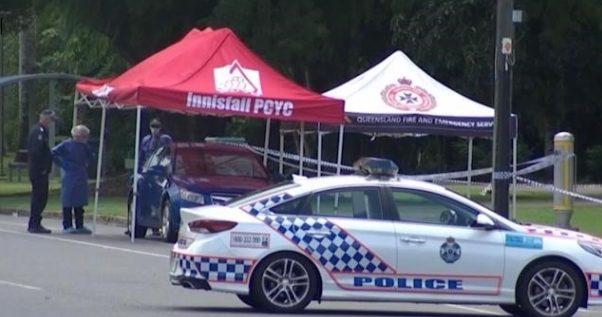The Vanuatuan man appeared before the Innisfail Magistrates Court this week charged with murder. The matter has been adjourned to a date later in the year in order for a brief of evidence to be collated and the matter to proceed via the committal process.
Murder is a charge that cannot be dealt with in the Magistrates Court. The charge must ultimately be determined in the Supreme Court of Queensland.
What is a brief of evidence?
In order for a charge to go through the committal process, a brief of evidence must first be provided to the accused person by the prosecutions. This brief of evidence contains all of the evidence against the accused, which the prosecutions say, is sufficient to continue with a charge. The brief of evidence can include all witness statements, footage, pictures, medical evidence, Body Worn Camera footage etc.
What is a committal hearing?
A Committal Hearing is a preliminary court appearance in the Magistrates Court. This is a key event as it will generally trigger the transfer of the charge from the Magistrates Court to the Supreme Court.
A Committal Hearing is not to determine guilt or innocence but rather to determine if there is sufficient evidence that a reasonable jury, properly instructed COULD (as opposed to should or would) convict an accused.
Options regarding a Committal hearing;
- Conduct a full hand-up without cross examining any witness(es); or
- Make an application to cross examine prosecution witness(es); or
- Conduct a registry committal.
Conduct a Full Hand Up without Cross Examining any Witness(es):
During this type of Committal no witnesses will give evidence. The Prosecutor will give all the evidence that they have against the accused to the Magistrate which may include but not limited to, written statements, videos, audio tapes and fingerprints.
At this Committal the accused may elect to plead guilty, not guilty or enter no plea at all. The Magistrate will then order that the matter be “committed” to the high court (whether it be the District Court or the Supreme Court) for either Trial or Sentence, depending on whether the accused will be pleading guilty or not guilty.
Make an Application to Cross Examine Prosecution Witness(es):
Should the accused instructions include, Cross examining the prosecution witness or witnesses, the matter will be listed for a Committal Hearing whereby all prosecution witness/es will appear in person to give evidence and can be cross examined.
This type of Committal can only take place if the Prosecutor consents or the Court gives permission. When the accuseds’ instructions are to proceed this way, they must be able to prove to the court that there is a valid reason/reasons why the witness/es need to come to court.
The Magistrate will then decide if there is enough evidence for the case to go to a Trial in the higher court. If the Magistrate does not think the police have been able to show enough evidence, the Magistrate can dismiss the case.
Conduct of a Registry Committal:
In order for this process to occur, an accused person must be legally represented and their lawyer must have all the evidence that police have against them in order to conduct a Registry Committal. On receipt of this material the Lawyer will submit directly to the Court Registry, documentation confirming that they have the police evidence against the accused.
The matter will be transferred to the higher court without having to attend court on this occasion. The Lawyer will receive notification that the matter has been received and committed to the higher court.
In all three (3) cases there will be no further court dates in relation to the committed charges until the accused receives notification from the Office of the Director of Public Prosecution advising that they will be conducting an Indictment Presentation in the higher court on a particular day, date and time.
Our team specialise in criminal defence. Our role is to sit down with you and work out the strategy that will get you the best possible result. If you have any questions about this article or any other topic of law, please call our team of experts on 1300 066 669.





